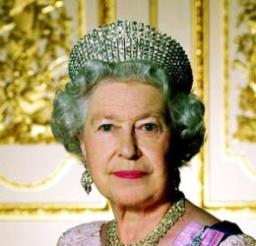The Patron’s Fund, set up to organise celebrations for the Queen’s 90th birthday, has defended itself after being categorised a "red risk" by the Charity Commission.
The charity, which is chaired by NCVO chief executive Sir Stuart Etherington, received the high risk category over conflict of interest concerns, due to the fact it awarded the contract of arranging the celebrations to its own not-for-profit company, run by the Queen’s grandson.
However the charity has clarified that all profits made by the event “will go directly to the Patron’s Fund”, and not stay with the company. SEL will receive a management fee for its work in running the event.
According to internal emails obtained by Buzzfeed through a request under the Freedom of Information Act, and seen by Civil Society News, the application for charitable status was classified as high risk due to the “potential for personal benefit due to the connection with the Parton's Lunch Events Limited (Company number 09564453) and SEL (UK) Limited (Company number 08063188).”
It was also considered a high risk due to the high profile application, as it was connected to the Queen’s 90th Birthday celebrations, due to its high profile trustees, and potential for high income (over £4m).
Peter Philips, the Queen’s grandson, heads the events company SEL UK, which will run the Patron’s Lunch on 12 June. He resigned from his role as trustee from the Patron’s Fund earlier this year, after his connection to the charity and event management company was widely reported as a “conflict of interest”.
However, the charity said it was always his intention to “step down as a trustee once the Patron’s Fund was fully operational to ensure that there was no perceived conflict of interest and to ensure the integrity of the event and the charity were maintained”.
It said he became a trustee following recommendations from the Commission that it should have three trustees, and intended to remain as one until a replacement could be found.
Profits made from the Patron’s Lunch will go to the Patron’s Fund, where they will then be distributed to the charitable organisations within the UK and the Commonwealth to which the Queen acts as Patron. The charity has clarified that the concept of the celebratory event for the Queen’s 90th was presented to the Palace by Philips. Once it had gone through its internal process, consent was granted to Philips and SEL to run it by the Palace.
The Commission has clarified that the high risk rating was assigned for the registration, and not for the charity going forwards. It added that when a registration case is classed as high risk the commission will undertake monitoring activities within 3-12 months of the charity being registered to ensure that it is complying with the undertakings given at point of registration.
Etherington ‘comfortable’
Etherington said that he takes “very seriously the not-for-profit nature of the event”, and that he is “comfortable that the set up and structure will ensure that this is the case”.
He said: “I have put in place a strong board of trustees who will be responsible for ensuring that this event achieves all the things it set out to do. The surplus that is made after event costs are paid will be put into The Patron’s Fund. A disbursement committee with a range of external charity experts will determine how this will be distributed in support of The Queen’s charities within the UK and across the Commonwealth. The details of the Patron’s Fund’s income and grants will be published in full in its annual report.”
“On a personal note, I am hugely looking forward to this opportunity to be part of a national celebration of The Queen, someone that has given so much to the voluntary sector and who’s influence and work has helped an untold amount of people over an extraordinary amount of time."
A Charity Commission spokesman said: “The Charity raised with the Commission during the registration process a potential for a conflict of interest with regards to the appointment of a key supplier.
“The Charity sought advice and the Commission advised the charity in line with our published policy CC29. The Charity subsequently confirmed to the Commission that the decision to appoint a key supplier would be made excluding the conflicted individual’s involvement. The Commission did not have any concerns at the time about how the decision was made.”










